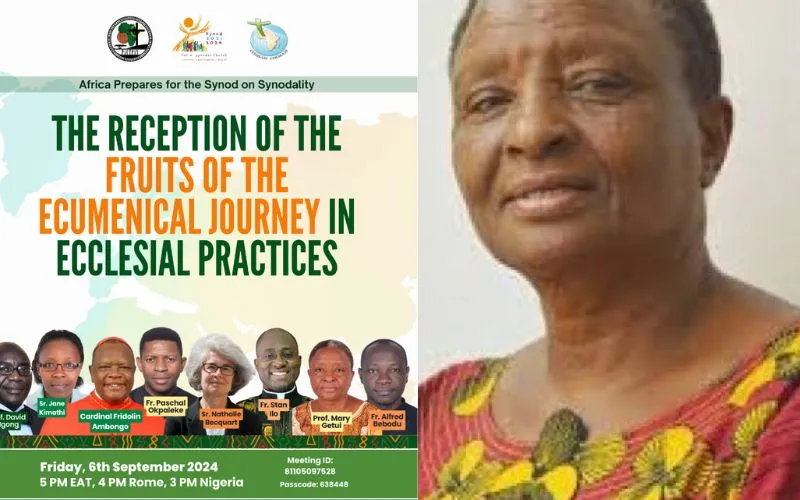One of the ways to promote ecumenism, according to Prof. Getui, is protecting children from prejudices against each other based on the differences in their denominations.
“We need to plant the seed early. We must examine the socialization of our children, and the things we say and do in our families as we deal with our young people so that the children do not grow with these prejudices and suspicions and stereotypes,” she said, adding that the “seed of ecumenism” must also be watered at all stages in homes and in schools.
Further underscoring the need to incorporate relevant courses for those in training, Prof. Getui said, “I teach in the department of Religious Studies where we have several different courses, some of them solely committed to ecumenism.”
Also speaking at the September 6 palaver session, Wilfrid Fox Cardinal Napier underlined the need to engage members of other denominations with respect.
Cardinal Napier said, “One of the lessons I have learnt about ecumenism is that very often, when we talk about other Churches, we are talking about their theological positions which date back to their formation, rather than the actual faith of the people that we are dealing with.”
(Story continues below)
He recounted his interactions with non-Catholics whose description of the Eucharist was Catholic much as they do not believe in Jesus’ actual presence in it.
“Sometimes we are fighting against the ideology that is historical rather than engaging with people who are living something different,” the immediate former Archbishop of South Africa’s Catholic Archdiocese of Durban who retired in June 2021 aged 80 said.
He continued, “At the same time though, I think it is imperative for us to share what we believe as much as we can because we believe it is Jesus present in the blood and the body, whereas in a lot of other denominations, it is a symbol of Jesus’ presence and not the actual sacramental presence.”
Many non-Catholics who participated in the 14th palaver session proposed ways in which the Catholic Church in Africa can work with other churches to address the challenges of governance on the continent.
Prof. David Ngong, a leading African political theologian, highlighted the need for ecumenical conversations on the issues of governance.
According to the member of the Baptist Church in Cameroon, many of the African States are products of, and continue to be sustained by churches.
“Many of the politicians misgoverning these States are also members of the Church. They may not attend the Church regularly, but they call themselves Christians. There is, therefore, a symbiotic relationship between the Church and the state,” Prof. Ngong said.
He added, “As we speak of a governance crisis in the state, it is also to speak of the governance crisis in the Church. The hands of the churches are not clean when speaking about the governance crisis in Africa.”
In Prof. Ngong’s considered opinion, churches in different African countries must reason together to find out whether they have what it takes to address the governance crisis in Africa.
Agnes Aineah is a Kenyan journalist with a background in digital and newspaper reporting. She holds a Master of Arts in Digital Journalism from the Aga Khan University, Graduate School of Media and Communications and a Bachelor's Degree in Linguistics, Media and Communications from Kenya's Moi University. Agnes currently serves as a journalist for ACI Africa.








